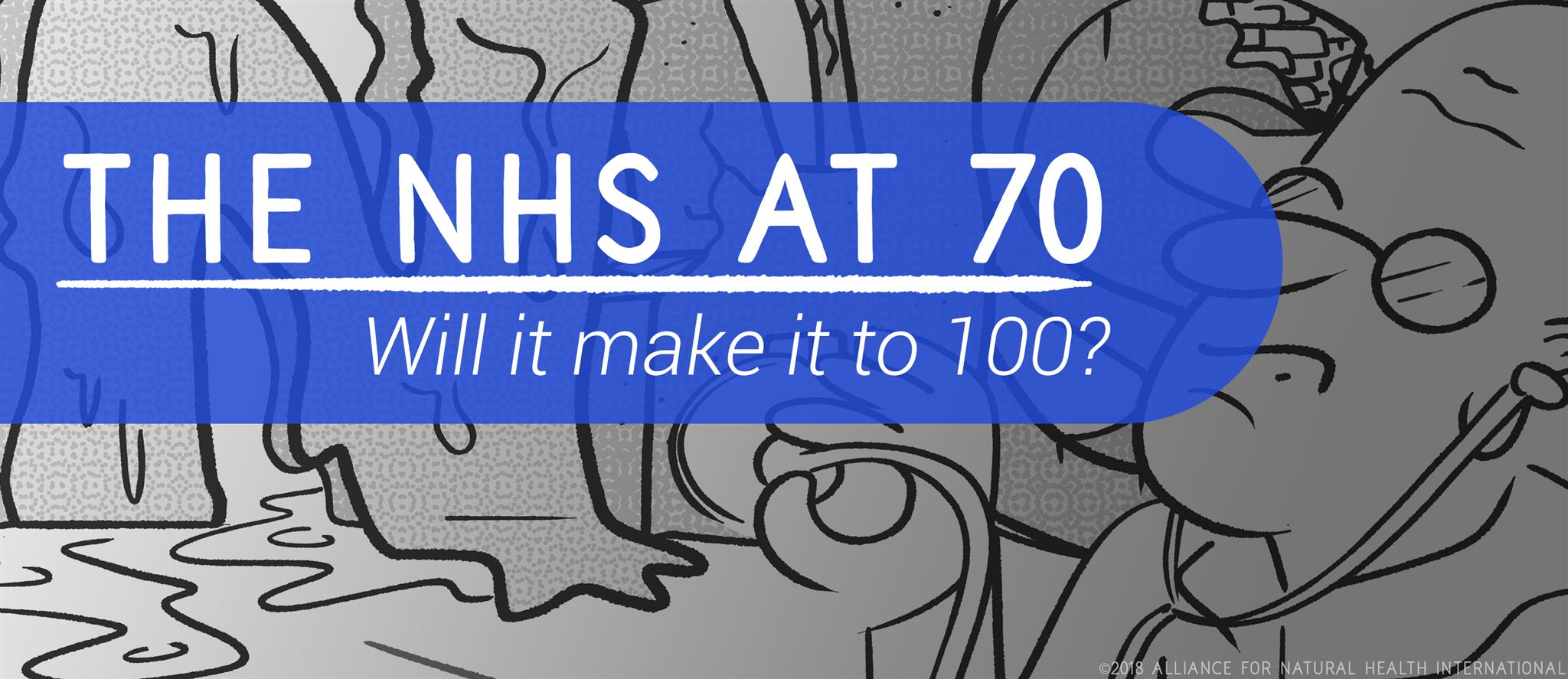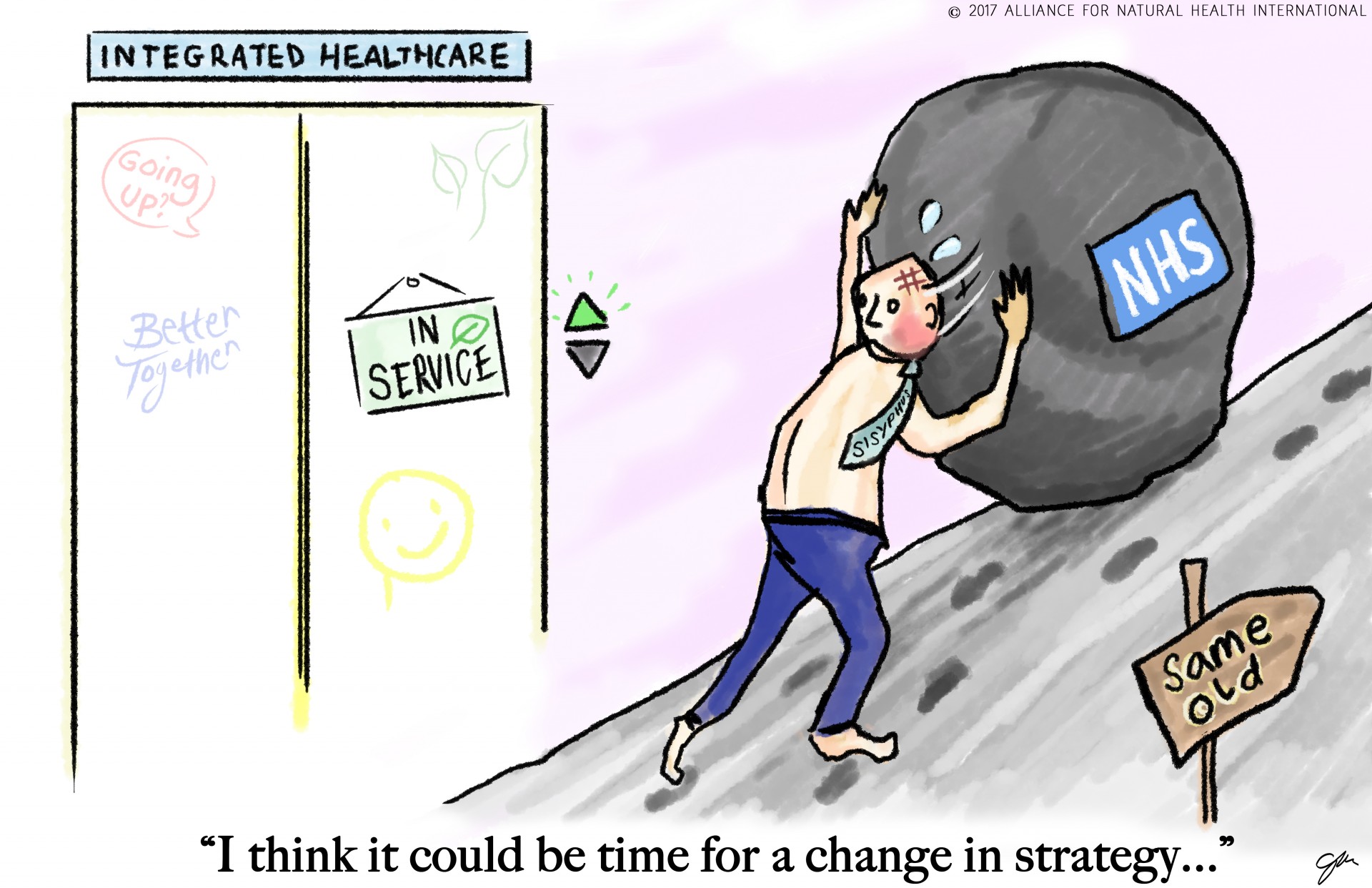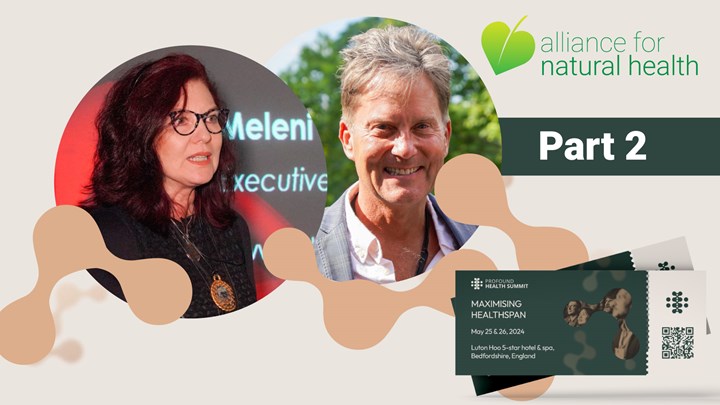How do you care for your health? It’s a question we, at ANH-Intl, have been asking a lot of people for a long time.
Recognising that many people choose a wide assortment of different approaches, that may include modifications to their diets or lifestyles, some alternative therapies, as well as some conventional medicines, it becomes ever more important that we have ways of assessing how the different combinations of approaches we use affect health outcomes across the multiple systems that control our health.
Looking at ways of overcoming this challenge have been central to our development of more sustainable solutions designed to empower citizens to take better control of their health. In the process, the aim is to reduce the burden on over-stretched health care systems that are not well designed to handle the ever-growing rates of preventable chronic diseases.
We passionately believe that the answers to our current healthcare crises lie in harnessing better the power of natural and sustainable approaches to healthcare. We call it working with nature, not against it.
That also means reducing our reliance on a system that has become greatly over-reliant on pharmaceuticals – a ‘pill for an ill’ system of medicine. Approaches that are congruent with nature have already been applied successfully to other sectors like energy and agriculture. Why should healthcare be any different? While a degree of lip service is currently being paid to sustainable healthcare in the UK’s NHS, so far, it’s either about throwing good money after bad into a broken system, or reducing the healthcare system’s negative impact on the environment.
We have brought together our work into the ANH-Intl blueprint for health system sustainability. Yes, a holistic model for healthcare that looks at human beings as dynamic living entitities who are part of an ecological system - working with nature, not against it. Moving from a system focusing on disease to one that focuses on and helps create and optimise health.
As it’s #ThrowbackThursday, we’re sharing articles from our extensive archive underlining the work we’ve been engaged in over the years and answering the question – why do we need natural and sustainable healthcare?

Healthcare systems are broken and desperately need fixing
Why governments are failing their citizens - and what can be done about it
As we look around us in the second decade of the 21st century, what do we see when we look at the performance of national healthcare systems? Are the rich, industrialised nations using their money wisely to yield populations of vibrantly healthy citizens, whose glowing vitality is enabled and supported by rational, easily accessible healthcare systems? Have the technological marvels of medical science been safely and sensibly employed in the pursuit of widespread good health, yet tempered by a medical profession that is sensitive to the varying needs and background of each individual and is empathetic in its approach?
Tragically, the answer to all of these questions is a resounding “No” – and not by a long shot. In this week’s ANH-Intl Feature, we present what we see as the most pressing problems facing modern, universal-access healthcare systems, such as the UK’s National Health Service (NHS). Although the problems are numerous and complex, it goes without saying that the problems need to be identified first before they can be solved. Additionally, we believe that a few simple steps would go an enormous way toward changing these systems for the better. Accordingly, the second part of the article consists of ideas and initiatives aimed at creating better, more inclusive, more efficient and more sustainable healthcare systems. All of these ideas are the subject of active, collaborative efforts by ANH to bring them to fruition.

What is health? Why resilience should be the new watchword
How we bounce back, adapt and move on is more important than absence of disease
We need a new concept of health, and resilience seems to fit the bill. Here’s why.
More than absence of disease
‘Health’ is a tricky concept to define, but ‘absence of disease’ clearly doesn’t cut it: not only because ‘disease’ is another slippery term, but also because it overlooks our potential to boost health way beyond a baseline level. Most of you are doing exactly that every day! The World Health Organization (WHO) uses a much improved definition: “Health is a state of complete physical, mental and social well-being and not merely the absence of disease or infirmity”. However, even this wider definition has no place for the individual’s dual capacity to resist health stressors and regain health post-illness – and even to learn and grow from the experience.

The NHS at 70 – but can it make it to 100?
Will the UK’s beloved NHS meet the challenges facing it to create a futureproof truly effective, sustainable and lasting health and care system?
The NHS turns 70 tomorrow (5th July 2018). Created in 1948 to provide free and universal access to healthcare, it’s regarded as one of Britain’s most significant achievements in the last century.
The big question is: how much longer can it survive on its present course?
Founded to provide universal, equitable, comprehensive, high quality healthcare free at the point of use, funded largely by general taxation, the NHS is unique globally. Since its inception, rapid changes in society and societal health have pushed this ageing service into becoming a disease management system that is at breaking point. With the current levels of funding, the present disease burden and the expectation of the public, the NHS – along with its 1.7 million staff – can no longer cope.








Comments
your voice counts
11 April 2019 at 8:11 pm
We need renewing in and restoring to health - not sustainable anything.
But then I speak for a shared purpose in wholeness of being.
So my sense of we is not a slogan for inducing a frame of thought and response but for true communication of truly relational being.
That which sustains us is more than the sum of its parts - and more than taking apart so that all the king’s horses and all the king’s men have and identity and business model in the attempt to put Humpty together again.
The model is wrong - that is - it is very limiting, in error and is being used against Life in the attempt to get for oneself rather than align in giving ourself. Giving to get is not truly giving because it has strings or conditions attached.
Please do campaign for the recognition that health is natural to us, and therefore any conflicts, denials and discords with our true nature set up the energetic blocks or imbalances of which sickness is a symptom. Yes. this includes 'society'. Focusing on symptoms is seeking to place cause in the world, in others, in the past - but anywhere away from self evasion that is perhaps best concealed in problem solving - and so problems must never be more than managed.
This recognition cannot be accepted in a fear-blame-mind that seeks to escape responsibility - and true power - by believing lack, guilt or failure attracts blame and penalty rather than correction of an error.
The sickness model of a world running backwards feels threat to its 'survival' and so seeks a more sustainable system for the cultivation and management of sickness - and that applies to the broad spectrum of human functional endeavour.
Technocracy is another term for globalism.
The 'medical' vector has been corporatised and politicised in terms of politic by stealth.
Language itself is weaponised and marketised to serve a manipulative agenda.
Redeem our vocabulary by refusing to run false currency.
I know it is not the form that makes something so - but the use to which it is put, but good intentions are not the same as a true discernment. Virtue signalling is an appeal for acceptance - instead of an extending embrace.
At some point it becomes undeniable that we are not being served but deceived or manipulated by forms of communicating that have no real intent - or are subverted or kept away from any real effect.
Sovereign will becomes an issue when it is being attacked and denied such as to leave nowhere on Earth to Be. Human experimentation, farming humans, and engineering humans by psychological manipulation are normalised - but they are against our nature in intent and effect.
To a large degree a few in authoritative and influential positions can effect the outcomes through the many who are downstream in the hierarchy of social allegiance and law.
Giving what is due to Life unto 'Caesar' of worldly power in possession and control - is choosing to grow the same mind in ourself. So there is a priority here that is everything - because when the priority is given to a corrupting of power “Everything is BACKWARDS; everything is upside down! Doctors destroy health, Lawyers destroy justice, Universities destroy knowledge, Governments destroy freedom, Major media destroys information, And religions destroy spirituality". (Michael Ellner)
Your voice counts
We welcome your comments and are very interested in your point of view, but we ask that you keep them relevant to the article, that they be civil and without commercial links. All comments are moderated prior to being published. We reserve the right to edit or not publish comments that we consider abusive or offensive.
There is extra content here from a third party provider. You will be unable to see this content unless you agree to allow Content Cookies. Cookie Preferences